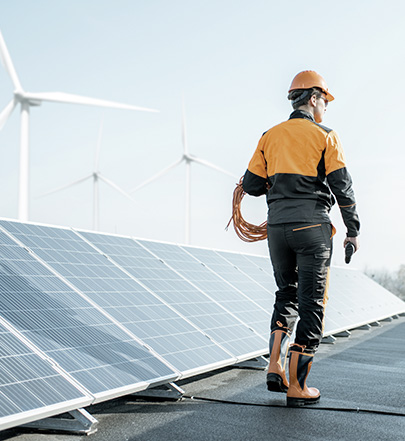Stakeholder Engagement - Environmental Dimension
Copel’s Sustainability Policy and Corporate Governance Policy establish general guidelines for engagement with stakeholders, emphasizing the importance of dialogue and transparency, the promotion of eco-efficiency, the sustainable use of natural resources and ecosystem services.
High admnistration
In addition to the legal and statutory responsibilities that are assigned, Copel’s Senior Management is involved in the definition and execution of strategies and guidelines related to environmental aspects.


Employees and Outsourced
Own and outsourced employees must base their actions on the Code of Conduct and other internal policies and standards that establish environmental guidelines.
The Internal Socio-Environmental Commissions (CISAs) aim to encourage employees to participate as multipliers of sustainability concepts, through the development of actions aimed at socio-environmental issues, through a work to raise awareness among internal and external audiences for the conscious consumption of natural resources. and disclosure of the Company’s social and environmental actions.
Through the CISAs, lectures are held throughout the year addressing major global issues, such as: Solid Waste Management and Conscious Consumption, Social and Environmental Impacts of Copel’s ventures and Climate Change. The actions of the Commissions are aimed at promoting awareness and the Sustainable Development Goals.
Clients, Communities and Society
To promote the engagement of customers, communities and society in general in actions against climate change and the conscious use of natural resources, Copel promotes, during its campaigns, actions such as the use of bicycles and electric scooters, provided by the Company, in a way to encourage customers to try the use of this alternative modal that provides the reduction of carbon emissions.
In addition, energy efficiency awareness campaigns are broadcast on radio stations and videos on various environmental topics are disseminated on digital platforms and television stations, in order to bring information to all audiences.


Suppliers and Partners
The engagement of suppliers is done through training and workshops on environmental issues, through the availability of Copel’s Supplier Manual and through the contractual clauses of socio-environmental responsibility. All of the Company’s commercial partners must follow the environmental liability clauses provided for in the service and product provision contracts.
The Supplier Manual is delivered to suppliers in each contractual signature and deals with the Sustainable Development Goals (SDGs), reiterates what is found in the contractual clauses of socioenvironmental responsibility, as well as addresses the topic of Climate Change, in particular the Inventory of Greenhouse Gases, instructing on the importance of preparing the document.
Shareholders and Investors
Copel’s environmental actions are aligned with Strategic Planning, risk management, decision making, business prospecting and the valuation of the Company’s capital and intangible assets, engaging and transmitting confidence to shareholders and investors regarding the continuity of the commitments assumed and the importance of the Group’s participation in the platforms and corporate sustainability indexes of the stock exchanges.
Following the principle of transparency, the Company discloses its environmental performance through the Integrated Report, socio-environmental reports and the inventory of greenhouse gases.


Regulatory and Governing Bodies
Copel, as a company providing essential services, participates in different actions related to public environmental policies, developed by different governmental spheres with the objective of improving the well-being of the population.
The services provided by the Company are subject to the rules of the sector’s supervisory and regulatory bodies and are discussed by representatives of similar companies, enabling the adoption of measures that satisfy the needs of society and contribute to the application of the best environmental practices.
To learn more, please visit the Copel Stakeholders webpage.



